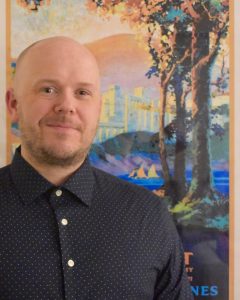 The Tikkun Olam Committee is pleased to welcome Dr. Barrett Ward on Tuesday, December 14, for “Leaving Afghanistan,” to discuss his involvement in helping over 40 Afghans leave their country. Please join us for what promises to be an educational and interesting conversation.
The Tikkun Olam Committee is pleased to welcome Dr. Barrett Ward on Tuesday, December 14, for “Leaving Afghanistan,” to discuss his involvement in helping over 40 Afghans leave their country. Please join us for what promises to be an educational and interesting conversation.
New Hampshire will be the new home for Afghan evacuees in the near future. Learning about the harrowing journey faced by many of these individuals and families helps our understanding of the difficult choices that needed to be made in order to leave Afghanistan.
If you would like to support Afghan refugees, the most valuable way to help a refugee family in your community is to be a friend. Your welcome and friendship can go a long way in helping them feel at home. Invite some refugees to your class or to a community meeting to share their experiences. Listen to what they went through before coming to New Hampshire. Find out what their lives were like before they became refugees and what they dream of today. Contact the refugee resettlement agency in your area if you would like to make a donation or help in the resettlement efforts of a refugee family. Know who the refugees are in your community. If interested in volunteering, please contact Sandi Cotter at Ascentria Care Alliance at (603) 224-8111.
Additional resources:
The New Hampshire Refugee Program (NHRP) operates under the New Hampshire Office of Minority Health and Refugee Affairs. Refugee Program staff work closely with the two New Hampshire voluntary resettlement agencies (volags), Ascentria Care Alliance (603-224-8111) and the International Institute of New England IINE (603-647-1500) as well as other area partners to support refugee integration. Contact NHRP
These nonprofit voluntary resettlement agencies (volags) receive US Department of State, Bureau of Population and Migration funding and agree to resettle a number of refugees at the start of the fiscal year based on their capacity to provide services for new arrivals and the number of refugees coming into the U.S. Additional money is provided to states by the federal Office of Refugee Resettlement to provide self-sufficiency services. These services include:
In September, the International Institute of New England in Manchester and Ascentria Care Alliance in Concord submitted proposals to the State Department to accept a cumulative 150 refugees from Afghanistan into New Hampshire.
The Ethiopian Community Development Council (ECDC), the U.S. Committee for Refugees and Immigrants (USCRI) is one of nine refugee-resettlement agencies the federal government works with, while the International Institute is affiliated with USCRI, and Ascentria Care Alliance. Agencies and their affiliates that accept refugees provide support for the initial resettlement period, including helping them find employment, enrolling their children in schools, and connecting the newcomers with any necessary social and language services.
Judy Reed, a member of the Keene Immigrant and Refugee Partnership (KIRP), as well as Project Home, said New Hampshire’s refugee (NHRP) coordinator had recently reached out to KIRP about whether there would be community support in the area for Afghan refugees. KIRP has assisted refugees and immigrants in a number of ways, including hosting “Know Your Rights” sessions, organizing free dental care for about 20 immigrants and facilitating social events to bring different immigrant communities together.
Seacoast interfaith network of churches and synagogue (SISC) finds housing and support for Immigrants. They also provide food and clothing as needed. Contact Ellen Fineberg.